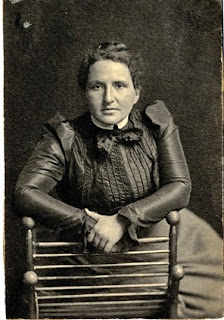ubiquitous,
it transcends spaces;
dented by cricket balls in back yards everywhere,
rusted red as the sands of inland loneliness,
it flourishes alike in urban lanes
and the frayed edges of country towns.
Nonconformist,
it is roof and walls,
shed and shelter,
making tip-tilted dog kennels,
tipsy stables,
cow yards and churches,
homes and hopes.
And it's always the weather's instrument,
shrill penny-whistle for the wind
that swings like a boy on corner gutterings,
nags loose sheets into marking insistent time,
and runs glissando along roof-ridges,
playing wash-board and skiffle.
And it is xylophone for the rain's fingers,
when farmers tap arpeggios on the rungs of water tanks,
longing for a resonant answer,
sleeping easier when it comes.
Migrant once,
you could be forgiven for thinking it indigenous,
it has become as much part of landscape and legend
as ironbark, gidgee
myall and coolibah -
an enduring harmony of constant image
and endless song.
ANNE BELL
Anne Bell (b 1927) is an Australian poet I'm lucky to have befriended - we've known each other since I worked on the NSW Department of Education's 'School Magazine' in the 1970s. If you were a child at that time, and afterwards, it's likely you know some of Anne's poems. She's also a print-maker and painter - a nuggety country woman who is as practical as she is poetic.
I asked her to send me this poem on corrugated iron. I especially love the verse about its being 'the weather's instrument'. You perhaps need to have lived in the country (as I do) with a rainwater tank to know about tapping arpeggios on the rungs of water tanks, but anyone who has made an instrument with glasses of water knows that the sound changes with the level of the water.
I sometimes ask students in writing workshops to write about ordinary things they consider beautiful, that other people might consider ugly - corrugated iron is one of those things for me - and obviously for Anne.
 |
| (The 'pictures' on this corrugated iron wall have a clay 'frame' and contain wasps nests that were inadvertently fired in the kiln, and a piece of broken crockery that was found in the creek.) |
There's so much corrugated iron at our place, I thought I'd show you some.
Top: the wall outside our composting loo on the verandah, just above the sink.
Middle: The inside of the door in our workshop.
Bottom: the walls of our compost heap






